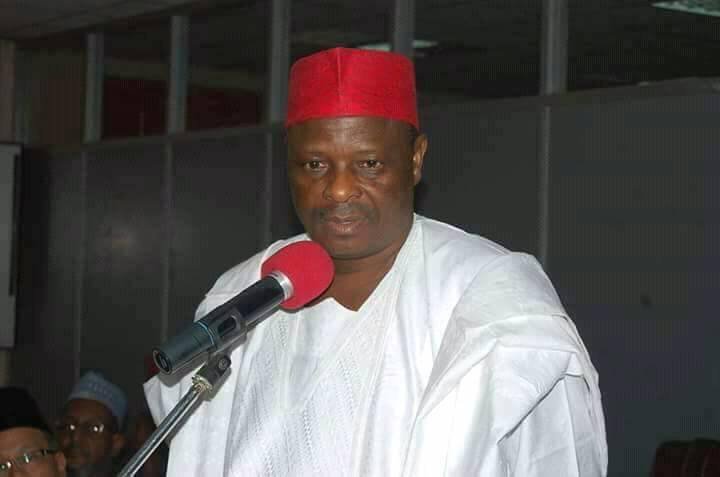The management of the Nigerian National Petroleum Company Limited has fired the managing directors of the three refineries under the control of NNPCL.
The refineries are Port Harcourt Refining Company, Warri Refining and Petrochemical Company, and Kaduna Refining and Petrochemical Company.
Other senior officials of the national oil company were also forced to resign, including Bala Wunti, former chief of National Petroleum Investment Management Services, an NNPCL subsidiary.
The new management also requested numerous officials who had one year until their respective retirement dates to leave.
Although the company’s spokesperson, Olufemi Soneye, did not react to questions about the topic when contacted, many reliable individuals acquainted with the situation verified the shakeup by the new management team.
Recall that on April 2, 2025, President Bola Tinubu abruptly fired previous NNPCL Group CEO Mele Kyari and several board members of the national oil firm as part of a larger reform to increase Nigeria’s crude and gas output. Kyari had been the head of the national oil corporation since 2019.
According to Presidency sources, Kyari’s and those affected’s dismissals were motivated by growing concerns about performance and a failure to reach key output targets.
They described the shake-up as a performance-based rearrangement, claiming that those previously in control “were going in circles” and that some had “become part of the problem, rather than the solution.”
One official, who spoke under the condition of anonymity because he was not permitted to talk on the topic officially, told our correspondent,
“The president did this because of their performance, because we needed to do things differently. The former people were taking us in circles, and then some of them became part of the problem.
“There needs to be a new direction. You need new people to bring new energy into the system. Look at them. Every one of them is capable. They are core industry professionals, real industry experts who know the industry inside and out. They are not politicians. This is the first time we have an entire cast of technocrats.”
Another official of the NNPCL said, “It is not about (Kyari’s) age. The NNPCL is a limited liability company and is not governed by civil service rules. So, it’s not about his age. There is always a need to get new brains that can deliver in new directions. The president has his mandate, which is clearly stated in the statement. He gave them his performance metrics, such as the amount of crude we produce. He asked them to review all blocks because we want to know which ones are producing and which are not.
“We have to optimise those that are not producing. He wants them to review all our assets within a certain period and give us good production. By 2030, they must be producing 3,000,000 barrels per day, and between now and 2027, we must stabilise at 2,000,000 per day. Then, gas, we must produce 10 billion cubic meters between now and 2030. These are performance metrics, and that is how it should be done.
“But the former system was not giving us that. They have been around the same spot for years. Our OPEC quota has not improved much since 1973. We have not been able to meet them. That is why reforms are important.”
Tinubu also named the new 11-member board, with Bayo Ojulari as group CEO and Musa Ahmadu-Kida as non-executive chairman, according to a presidential statement issued at midnight.
Ojulari, the new NNPC Limited Group CEO, is from Kwara State. He formerly served as Renaissance Africa Energy Company’s Executive Vice President and Chief Operating Officer. His Renaissance recently led a group of indigenous energy corporations in the historic acquisition of the full ownership position in the Shell Petroleum Development Company of Nigeria for $2.4 billion.
Speaking about the recent shakeup that has swept the managers of the three refineries under NNPCL management, a source at the firm, who spoke to one of our correspondents in confidence due to a lack of authority to speak on the topic, said, “The three MDs have been asked to go.
“They include the MDs of Port Harcourt Refining Company, Kaduna Refining and Petrochemical Company, and Warri Refining and Petrochemical Company. Some other senior managers were asked to leave as well.”
The NNPCL came under fire on Tuesday as the $897m Warri refinery revamp flopped. The report also stated that the Port Harcourt refinery had been struggling at under 40 per cent production capacity.
Industry operators and experts questioned the NNPCL’s operational integrity, particularly in terms of transparency, efficiency, and overall management of Nigerian refineries under its control.
This followed the discovery that the Warri Refining and Petrochemical Company has been closed since January 25, 2025, owing to safety concerns with its Crude Distillation Unit Main Heater.
According to an April 2025 document on the midstream and downstream sector obtained from the Nigerian Midstream and Downstream Petroleum Regulatory Authority, the refinery, which cost $897.6 million in maintenance costs, failed to produce Premium Motor Spirit (petrol) and was shut down less than a month after former NNPCL boss Kyari declared it operational.
This was characterised as depressing by industry operators and specialists, and additional investigation revealed that the Port Harcourt Refining Company, which resumed operations in November 2024, was working at less than 40% capacity.











